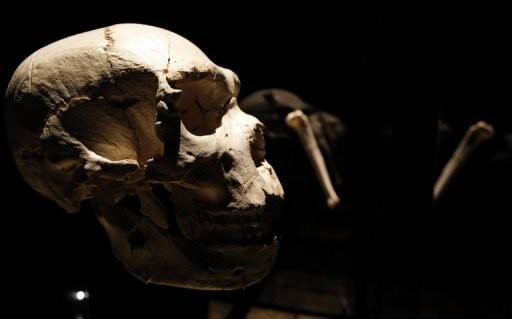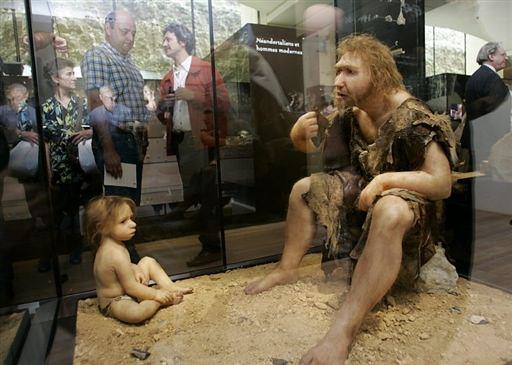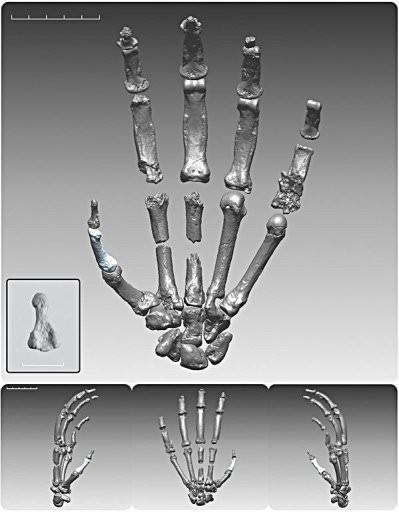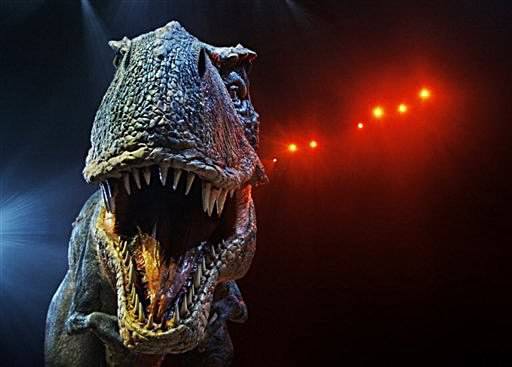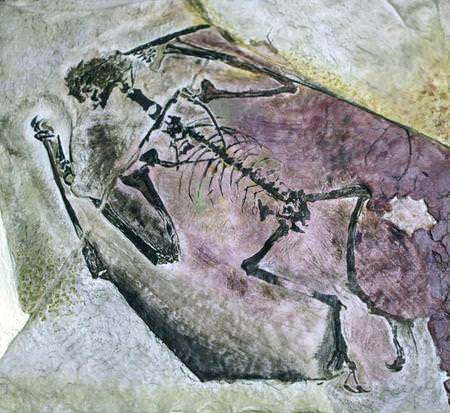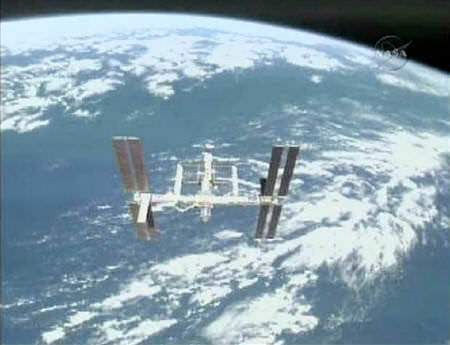轉載於雅虎新聞
長春藤 更新日期:2009-02-04 記者:Marcus Maurice
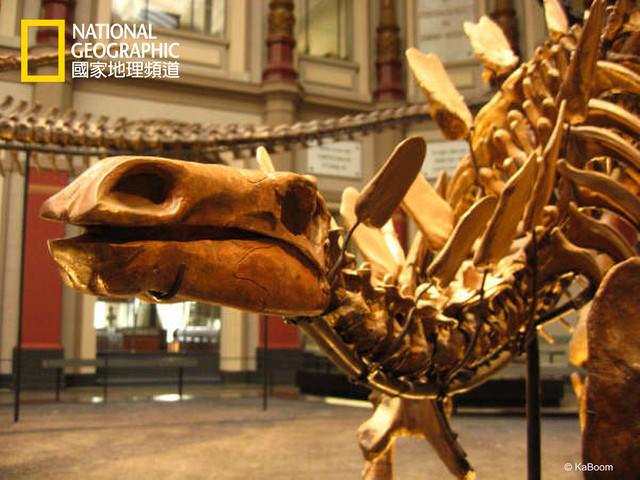
It would be hard to find many people who have influenced scientific thinking more than Charles Darwin. As a young man, Darwin became one of the scientific elite. But years later, he was harshly criticized when he published his theory of natural selection, which speculated that humans evolved from primates. In his waning years and after his death, Darwin was finally vindicated: he had provided logical explanations for the vast diversity of life on the planet and is now thought of as the father of biology. For the 150th anniversary of the original publication of Darwin’s brilliant masterwork, On the Origin of Species, National Geographic Channel presents the four-episode Darwin Special.
Contrary to popular belief, most of Darwin’s discoveries for the theory of evolution did not occur when he was on the Galápagos Islands. Instead, his thoughts crystallized during the five years he spent on board the HMS Beagle, a journey that is retold on the program “Darwin’s Lost Voyage.” During a stop on this expedition, Darwin cultivated his ideas in the wilds of South America. Darwin was perplexed by fossil discoveries, and he began to question the accepted views on the creation of species. For example, when Darwin saw flightless penguins, he wondered why they use their wings the way fish use their fins rather than for flying.
Darwin’s theories met brutal resistance at their inception, but over time they have become accepted. Almost all scientists also agree with Darwin that dinosaurs have been extinct for millions of years, but in “Evolutions: Dino Turkey,” new evidence suggests that one type of dinosaur did not disappear at all. Instead, the ferocious velociraptor may have morphed into Thanksgiving’s favorite bird—the turkey. Is this the evolution of Darwin’s theories or just a hoax? Tune in to National Geographic Channel’s Darwin Special this month to find out.
1. Which of the following is true about Charles Darwin when he was a young man?
(A) He studied at a prestigious university in South America.
(B) He was a very respected young scientist.
(C) He was studying to be a priest.
(D) He was a zookeeper in South America.
2. When did Darwin come up with his theories on evolution?
(A) After he wrote On the Origin of Species.
(B) On a vacation in the Galápagos Islands.
(C) Near the end of his life.
(D) While he was traveling aboard a boat.
3. In the beginning, how was the theory of natural selection seen by the public?
(A) No one believed it to be true.
(B) Only the scientific community thought it was brilliant.
(C) The public made Darwin leave the country.
(D) Darwin was treated as a hero as soon as his essay was published.
4. What is the episode “Evolutions: Dino Turkey” about?
(A) A new dinosaur exhibit at the world’s largest museum.
(B) How dinosaurs went extinct when a comet hit the Earth.
(C) A specific dinosaur that evolved into a turkey.
(D) Evidence that proves all dinosaurs could fly at one time or another.
單字小舖
1. harshly adv. 嚴厲地
be harshly criticized 遭受到嚴厲批評
2. natural selection 天擇,自然淘汰
3. primate n. 靈長類動物
4. diversity n. 多樣性;差異
5. biology n. 生物學
6. masterwork n. 傑作
7. evolution n. 演化
8. expedition n. 遠征;探險
9. wild n. 荒野,荒地(常用複數)
10. fossil n. 化石
11. flightless a.(鳥類等)不能飛的
12. fin n. 鰭
13. brutal a. 嚴酷的,苛刻的
14. extinct a. 絕種的,滅絕的
15. ferocious a. 兇猛的
16. velociraptor n. 迅猛龍
17. morph vi. 轉變
18. prestigious a. 有名望的
19. zookeeper n. 動物園管理員
20. comet n. 彗星
片語小舖
1. be thought of as… 被視為……
= be looked upon as…
= be regarded/seen/viewed as…
2. tune in to… 轉到……(頻道)
3. come up with… 想出∕提出……(主意、點子等)
精解字詞片語
1. elite n. 菁英(集合名詞,不可數)
the social elite 社會菁英
例: Your brother is a member of the intellectual elite.
(你的老哥可是知識份子的菁英之一。)
2. speculate vt. 推斷(其後接 that 子句作受詞)& vi. 思索
speculate on/upon… 思索……
例: Anna refuses to speculate on the reason why her teacher dislikes her.
(安娜不願意去想她老師不喜歡她的原因。)
3. evolve vi. 進化;發展
evolve into… 演化成……
例: Do you believe that apes evolved into human beings?
(你相信猿類進化成人類嗎?)
4. wane vi. 衰落;變弱 & n. 衰退
on the wane 日漸衰敗
例: Since the election ended, the public’s interest in politics has waned.
(選舉結束後,大眾對政治的興趣就減弱了。)
例: The king’s power is on the wane.
(這名國王的勢力正日漸式微。)
5. vindicate vt. 証明……正確;証明……清白
例: The suspect was vindicated when the actual criminal was found.
(當真正的罪犯被捕時,終於還了該嫌疑犯的清白。)
6. Contrary to + N, S + V 與……相反的是,……
例: Contrary to what you may think, Jenna is intelligent.
(和你想的恰好相反,珍娜很聰明。)
7. crystallize vi.(想法、計畫等)具體化,成形
例: When our plans started to crystallize, we got ready to go.
(當我們的計畫開始成形,我們也準備好要付諸實行。)
8. on board + 交通工具
= aboard + 交通工具 在……(車、飛機、船等)上
例: The passengers aboard the ship were delighted to see the whale.
(船上的乘客很開心能看見鯨魚。)
9. cultivate vt. 建立;培養
例: It takes time, thought, and effort to cultivate your mind.
(培養心性必須花時間、心思和努力。)
10. perplex vt. 使困惑
be perplexed by… 對……感到困惑
= be confused by…
例: He is perplexed by the math problem.
(這個數學問題讓他很困惑。)
11. wonder vt. 納悶,感到奇怪
wonder + 疑問詞引導的名詞子句 納悶∕想知道……
例: I wonder why he said that.
(我納悶他為什麼說那種話。)
12. resistance n. 抵制,抵抗
例: The government troops were met with fierce resistance from the rebel forces.
(政府軍遭受反抗軍的強烈抵抗。)
13. inception n. 開始,起初
例: I was not alive at the inception of color TV.
(彩色電視問世時我還沒出生。)
14. hoax n. 玩笑,騙局
例: The photo of the UFO was nothing but a hoax.
(那張幽浮的照片只不過是個騙局罷了。)
15. at one time or another 在過去某個時候
例: Everyone has told a white lie at one time or another.
(每個人都曾經有過說善意謊言的時候。)
要找到比查爾斯‧達爾文更影響人類科學思維的人實在不多見。達爾文在年少時期是科學界的菁英份子。但多年後當他發表天擇論,推測人類是由靈長類演化而成時,受到了嚴厲批評。他在風燭之年和去世後才沉冤得雪,世人認同達爾文為地球生物的多樣性提供了合理的解釋,並認定他為生物學之父。為了紀念達爾文的曠世鉅作《物種起源》原著發表已迄今 150 週年,國家地理頻道為您呈現包含 4 個單元的《達爾文兩百週年紀念特輯》。
與普遍認知相反的是,達爾文大部分關於進化的理論並非來自於加拉巴哥群島的探險,而是來自於『小獵犬號』上的 5年航程,而這段旅程也將重新在『達爾文的最後遠征』節目中呈現出來。在這趟探險的一次停留中,達爾文在南美洲的荒野地區蘊育了他的想法。他對所發現的化石感到困惑,並開始質疑先前為普世所接受的物種起源觀點。舉例來說,當達爾文看到不會飛的企鵝時,他思考為什麼牠們使用翅膀的方式就如同魚類使用鰭一般,而不是用來飛行。
達爾文的理論在初期受到嚴厲抵制,但隨著時間演進,這些理論已被世人接受。幾乎所有的科學家都同意達爾文的觀點,認為恐龍在好幾百萬年前已經絕種,但在『演化足跡:迅猛火雞』的節目中,新的證據顯示有一種恐龍從未滅絕。兇猛的迅猛龍有可能演化成感恩節上的大餐──火雞。這究竟是達爾文理論的進化,抑或只是個玩笑?想知道答案,就敬請準時收看本月份國家地理頻道的《達爾文兩百週年紀念特輯》。
1. 關於年輕時期的達爾文,下列敘述何者正確?
(A) 他在南美洲的一所名校就讀。
(B) 他是一名備受尊崇的年輕科學家。
(C) 他進修想成為神父。
(D) 他在南美洲當動物園管理員。
題解: 根據文章第一段,達爾文在年少時期是科學界的精英份子,可知 (B) 為正選。
2. 達爾文何時想出關於進化的理論?
(A) 在他完成《物種起源》之後。
(B) 在加拉巴哥群島渡假時。
(C) 在他晚年時。
(D) 在他搭船到處旅行時。
題解: 根據文章第二段,達爾文大部分關於進化的理論並非來自於加拉巴哥群島的探險,而是來自於『小獵犬號』上的 5 年航程,故 (D) 為正選。
3. 達爾文的天擇說在剛開始時評價如何?
(A) 沒有人相信這個理論的真實性。
(B) 只有科學界認為這個理論非常傑出。
(C) 大眾逼迫達爾文出走他國。
(D) 當達爾文的論文發表時,大家都視他為英雄。
題解: 根據文章第一段和第三段,達爾文的天擇說在發表初期時受到嚴厲的批評,由此可知,一開始沒有人相信天擇說的真實性,故選 (A) 。
4. 『演化足跡:迅猛火雞』節目的內容為何?
(A) 在世界最大博物館中一個新的恐龍展覽。
(B) 當彗星撞地球後,恐龍是如何滅絕的。
(C) 某種恐龍演化成為火雞。
(D) 證據顯示所有的恐龍都曾經能夠飛行。
題解: 根據文章第三段,『演化足跡:迅猛火雞』節目中,新的證據顯示有一種恐龍從未滅絕,兇猛的迅猛龍有可能演化成感恩節上的大餐──火雞,可知 (C) 為正選。
標準答案: 1. (B) 2. (D) 3. (A) 4. (C)
